PPC, also known as Pay-Per-Click is one of the most utilized tools in the digital world. Ads on such sites as Google, Amazon, or social media sites have successfully outrun the traditional media. Thanks to advanced algorithms, automated bid management is a cheaper and more direct option to reach your customers than buying an ad on TV or newspaper.
For example, in 2021 Google Ads, formerly known as Google Adwords, and Facebook had over 50% of the total digital advertising in USA. With Google’s 28.6% and Facebook’s 23.8%, you can say that these giants had a control over one of the biggest markets in the world when it comes to advertising.
In this article, we will look at PPC Bid Management. What is the right and wrong bidding strategy? Should you go for manual bid management, or it’s better to do bid automation? What is a secure ad placement, and should you go for the maximum bid amount at all costs?
We will answer all of these questions and more in this comprehensive guide on how to do PPC Bid Management! Let’s dive in!
What Is PPC Bid Management?

PPC bid management is the process of setting and adjusting the bids for Pay-Per-Click advertisement campaigns. Each keyword-based advertisement or placement is bid upon between different advertisers who want their ad to be displayed at the top of the search results, social media walls, or websites. Those who win the bidding get to be communicated to the user. If the person clicks on the link, an advertiser is charged a set amount of money.
You can do the bid management manually, creating ad space for individual bids, which gives you complete control of the marketing budget and paid search. You can also choose the automation strategy, where the platforms and algorithms will help you in setting bids and finding the most profitable position on the market. Each one is great for driving conversions and traffic to your website, you just need to find out what works best for your particular situation.
Be sure to keep on monitoring your investment, as the PPC game is dynamic and can change on a day-to-day basis, so if you want to maximize profitability, increase sales, and maximize conversion on a given keyword, you need to review your ads pretty often.
PPC Bid Management – Key Elements
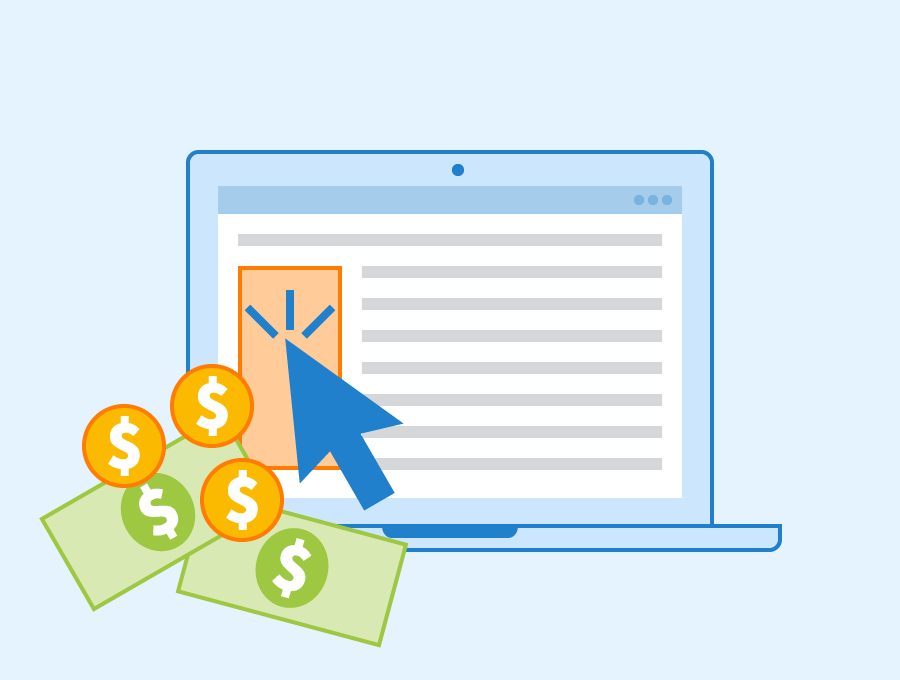
- Keyword Research – it’s probably the most crucial element in PPC bid management, as all the new bids have to be based on a set of keywords that align with your advertising goals.
- Bid Strategy – you need to create a strategy for your bid cap, what is supposed to be the exposure level of your bids, and other factors that can influence your bid research.
- Bid Monitoring – keep on reviewing the performance of your ads, especially with the click-through rates (CTR), the conversion level, and the costs.
- Bid Optimization – after reviewing your bids, make data-driven decisions to optimize your bids performance. Whether it’s increasing bids for high-performing keywords or creating a better ad copy, analyze and optimize accordingly.
- Budget Management – make sure that your campaign is within the set budget. Sometimes aggressive bids can cost you a lot of money, so adjust your bid strategy accordingly.
- Ad Testing – see what works! Don’t hang up on your first plan, try a different copy, maybe some other keywords or bid amounts. Perhaps even another format, like video ads, would be better for your company. There are plenty of options out there, find the best one for you.
PPC Bid Management – Important Acronyms
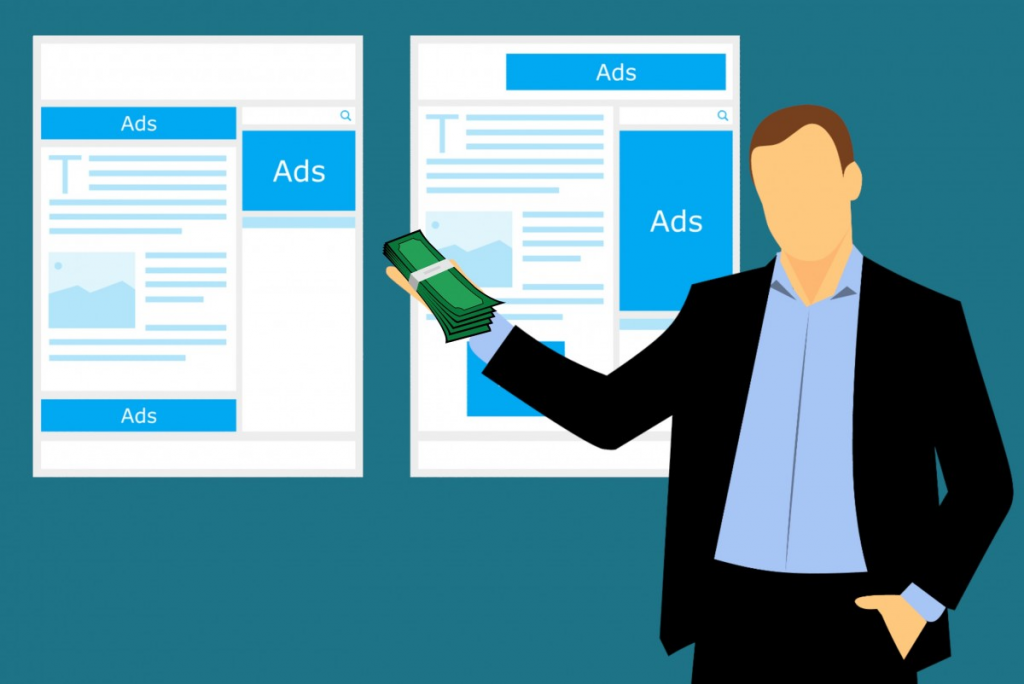
There are a couple of essential acronyms for PPC bid management, so treat this part as a dictionary for all the phrases we will be using throughout the article.
CPC
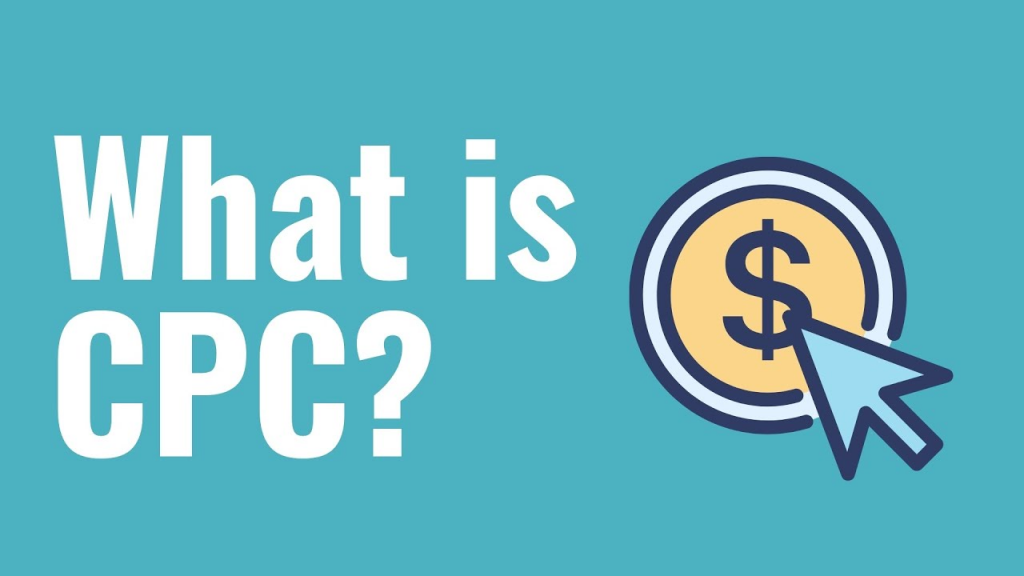
Cost-per-click (CPC), as we have mentioned before, is a payment structure. In essence, you pay for every click on your ad. For example, if you bid on Google ads, you set a maximum CPC, i.e. the highest amount of money you are willing to pay for a particular ad. Of course, it will influence your bidding range if you set the max CPC for 25 cents, and someone would pay a dollar. You may not be able to outbid them, so set up your ads with that in mind.
CPM
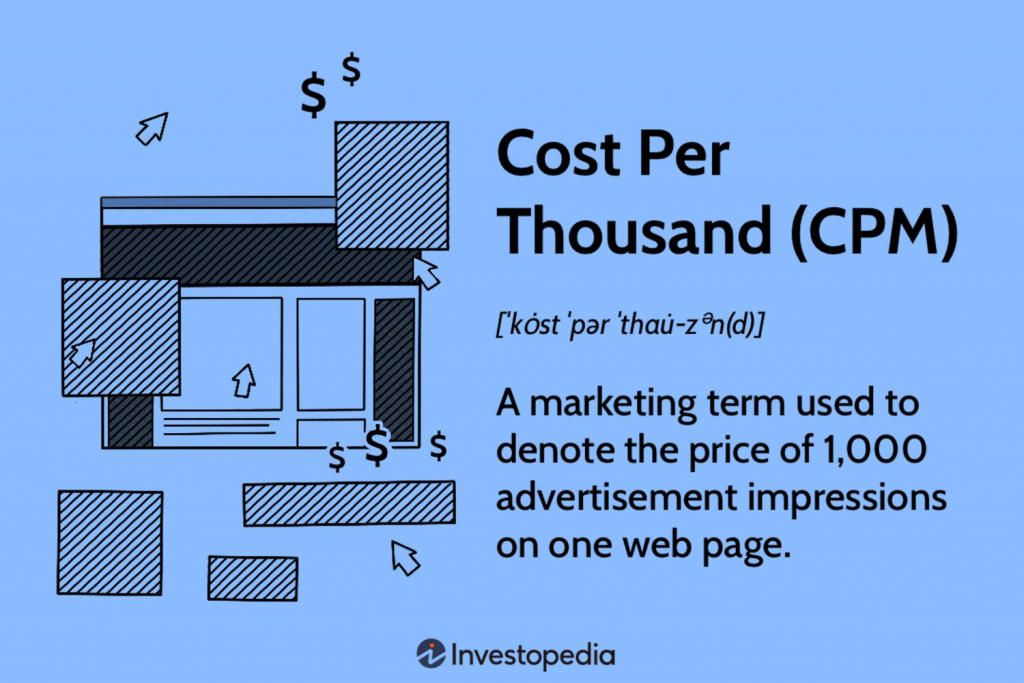
CPM means cost-per-thousand-impressions. It’s a bidding strategy, where you pay for every thousand impressions on the website, meaning – a thousand times where your ad appeared on the screen. It doesn’t matter if someone clicks on that ad; every viewing counts. Here, you will need to set the max CPM for 1000 views. If you want to increase the visibility of your company or just have better brand awareness, this is the way to go about it.
CPA
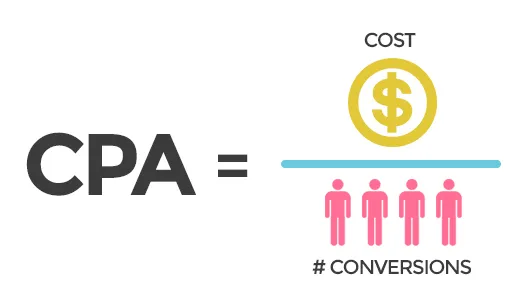
CPA, on the other hand, means cost-per-action/cost-per-acquisition. Sometimes, it’s also referred to as the cost-per-conversion. As you can imagine, different businesses treat different things as conversions. For some, it is signing up for the newsletter. For others, it can be getting a phone call, liking a webpage, etc. In the PPC ad campaign, you need to define what you are getting at to set up the appropriate action.
CPA Calculation
How is it being measured? Well, essentially, you divide the costs of your entire campaign by the number of actions that have been made on your website. If you pay a hundred dollars, and ten people will sign-up for your newsletter, your CPA would be ten dollars per person.
It is probably the most expensive PPC campaign, as it will directly influence your conversions, so if you have a budget for that – then go ahead and try it out for yourself.
What Are the Goals of PPC Bid Management?
So, now that you know all the different three-letter words associated with PPC bid management, let’s go over some of the goals you may want to reach with a PPC campaign. Of course, choosing one over the other does not mean you completely forget about those, as most campaigns are usually interconnected. You can gain more traffic to your website while also wanting to get an even better conversion rate. Be sure to see what works best for you and your company; otherwise, you will lose money.
So, without further ado, let’s go over the main goals of PPC campaigns.
More Traffic
Here, the goal is simple. Get as much traffic as it is possible. The critical thing to remember is the click-through rate and whether it goes up or down for your campaign. Be sure to monitor those constantly, as you can twitch your ad campaign a bit to reach better results.
More Conversions
Here, it’s all about the conversion rate of your campaign. Those would mean sales, leads, signing up for the newsletter, social media actions, and whether you need them in this campaign. It’s mostly used to expand the business and achieve the target CPA value.
Cost Efficiency
The next thing to remember is the cost efficiency that PPC bid management brings to the table. Thanks to that, you can optimize the elements that need some optimization and pour some more money into those. That will ensure that your campaigns are always the most effective and cost-efficient.
Quality Score Improvement
Bid management can also improve your cost-per-click and ad rankings. With the correct bid management, you can focus on getting better keywords for your ad, the better quality of copy, and overall – lowers CPC and higher interest.
Better Ad Positioning
Additionally, you can manage the ad placement more effectively with PPC bid management efforts. Top positions on the search engine results page are not easy to get, but with a focus on creating strategies for bidding, you will be able to achieve those in no time.
Surpass the Competition
And finally, with the correct management, you can surpass your competition and get a competitive advantage over them in the long run. It’s so much easier to get that with the proper bid management, whether it’s visibility, clicks, or conversions.
PPC Management – Important Factors
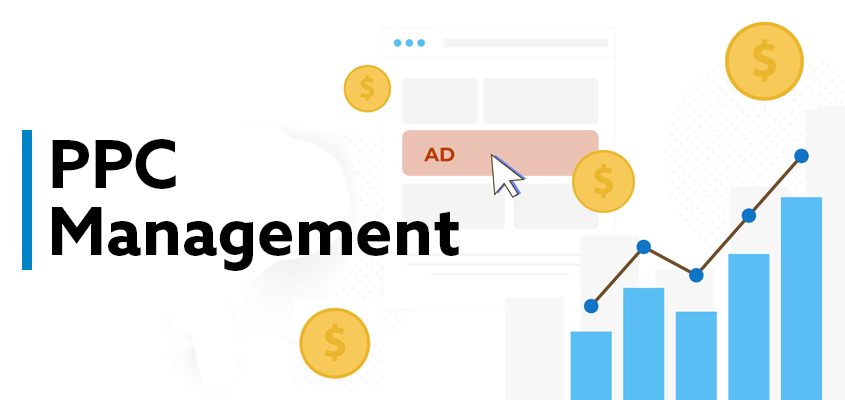
So, let’s now go over all the essential factors that influence PPC bid management. Whether those would be some historical elements or the quality of your content, all of those things affect the quality score of your campaign and, by that, the cost of your marketing efforts. So, if you want better results for less money, you should analyze those factors in your reviews. Let’s dive in!
Historical Data
First, you need to consider understanding the historical data regarding bid management. See what worked in the past. What is the history of this kind of campaign in general? What are the automated bidding suggestions based on your overall situation?
Maybe your campaign is seasonal, and you must implement different campaigns for different months.
You can utilize plenty of data to pursue your goals and get even better results overall. Be sure not to overlook this information, as it can be crucial when setting up a successful campaign for your company. You should listen to what the algorithm suggests and modify your campaign efforts accordingly, as it analyzes millions of possibilities in seconds and knows the platform well.
Conversion Tracking

The next factor you need to consider is conversion tracking. It’s a Google tool that lets you see what happens after someone clicks on your ad. It’s the critical element in increasing the conversion rate and making your campaign more cost-effective. Conversion data informs you whether your campaign is working correctly or not. Now, let’s go over some steps you need to take for successful conversion tracking.
Conversion Tracking in a Few Steps
The first thing you need to do is define the conversion you are going after. The most common conversion actions sought after in the PPC campaigns are:
- Leads – getting more leads can translate easily into getting more money, so the cost efficiency in this particular case is rather high.
- Phone calls – you can set up your conversion to getting phone calls to your company. Human contact is an excellent way of getting more clients.
- App–based conversion – if you want to grow your app, you can set up the conversion to get more app installations or purchases.
- Local conversion – getting beyond the digital space and getting people to go to your store in the real world.
Next, you need to find a way of tracking your conversion. Always be one step ahead of those silicon valley giants, as they are more than willing to get you better results on paper than they are in reality. So, here are some ways you can track your conversion.
- Cookies! – cookies are great for tracking conversions, as you can simply see a tag or code snippet that directs people to your website.
- Special Codes – you can also track the number of people who interacted with your campaign by creating promotional codes and discounts for the particular campaign. Redeeming those will inform you how many people used the code in question.
- Callbacks – you can also count the number of calls you have received related to the particular campaign. It can be a specific number you gave in the ad, or you can ask people how they found out about you.
Quality Score
Another critical factor when it comes to PPC bid management is the quality score of your keywords. Google assigns a specific quality score to each keyword in your ad account from one to ten. This will influence how the search engine perceives your ad and how relevant it is for your campaign.
The quality of your campaign keywords can be affected by historical factors, as we have mentioned before, how relevant the ad is compared to the keyword and the overall UI/UX side of your website.
So, how does it relate to the bidding aspect of PPC? Well, in an indirect way. Let’s say that you have a lot of money invested into bidding, then you will probably outbid anyone on the market with ease. But it will affect the cost-per-click ratio.
The better your quality score, the lower your average CPC. Why is that? Well, the better your ad is, the more people will click. Similarly, the worse your ad is, the fewer people will be interested, so it will have to be shown to more people to get enough clicks, meaning – your CPC will skyrocket.
Avg. CPC
Next, we have the average CPC ratio. It’s a value that you can check out in your Google Ads Campaigns menu. Different platforms have similar statistics, but we tend to focus on Google Ads as the most significant ad seller on the market. The average CPC stat is the average amount of money that you have to pay for each click.
Those prices will differ depending on what you are trying to accomplish. Google Ads Campaign for something popular, like shoes or snacks, will probably be much easier to organize and – much cheaper to reach people than if you were, for example, trying to reach people who buy sand in massive numbers. It doesn’t mean that shoes-based ads will be cheaper, but it is much easier to find 1000 people wanting to buy shoes than 1000 people needing 5 tons of sand.
On the other hand, if there is a lot of competition in a given market, the price will also go up. Supply and demand, simple as that. And – if you want a better ad positioning, that will also cost you more. Of course, you can try and rely on being the first one on the second page of Google, but we have never been there, nor did anyone else.
Remember to check out the Shares of your ad after starting the campaign. In most cases, high impression share indicates that you have overbid the keywords and can probably get similar results without spending so much.
Budgeting
And finally, your budget is probably the most important factor on our list. It’s as simple as that – if you have unlimited money, you can probably outbid anyone who stands in your way with no issues whatsoever. But unfortunately, there are not many people who can say that about themselves, so if you want to effectively manage your bids – you will need to put in some hard work to get the best results for the least amount of money.
There are a couple of things to consider in that regard. For starters, bid high on the keywords you want to succeed—your Magnum Opus regarding search findings. Then, adjust your strategy accordingly. Think about the ad positioning, maybe you do not have to be the first result, but you’re good with the second.
Perhaps you can find less crowded keywords to optimize your ad? Maybe a week is enough time for your ad to do some damage, and you will be satisfied with the results. Or maybe, just maybe, you don’t need to have a conversion-based PPC, and only showing people your product will be enough?
You can additionally take the seasonal character of some products and services, with some of them having much more marketing potential in summer or winter. You wouldn’t buy an ice-cream ad in December, would you?
There are plenty of questions you will have to answer for yourself before placing a bid. Smart bidding is taking control of your ad platform. So, to do that, check out this list of the most important elements that can influence the price of your campaign:
- The length of the campaign
- How many high-ranked keywords are you targeting
- Your CPA
- The quality of your ad
- Historical precedence
- Seasonality
What Are the Benefits of Good PPC Bid Management?
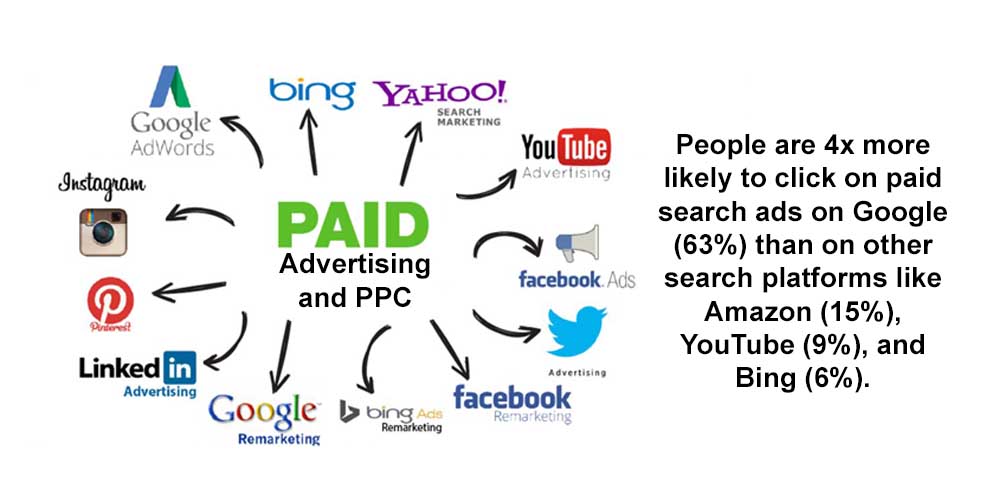
So, let us now go over some of the key elements regarding the benefits of running a successful PPC bid management campaign. Whether those would be less wasted ad spend money, more revenue data, portfolio bidding, or getting increased conversions – PPC bid management is the key to implementing intelligent bidding strategies. So, if you are interested in maximizing the performance of your campaigns and reaching your target audience in the most effective way possible – read on!
Cutting Costs
One of the crucial benefits of effective bidding is that you can optimize your costs and create even better results. As we have stated many times in this article, the cost of bids varies depending on many factors. Sometimes, lower bids can have the same performance as the higher ones. Sometimes your ad rank can change the cost-per-acquisition (CPA) significantly. Keep that in mind when thinking about your campaign budget.
Better Targeting
The next thing to remember is that you can get much better targeting with suitable bids. You will be able to adjust them based on the performance of each keyword, placement, and target audience. You thus will be able to optimize your marketing strategy in the high-performing areas.
More Traffic
PPC bid management can also facilitate getting more traffic to your website or landing page. It will help you with better ad positioning, higher search result pages, and better click-through rates. Additionally, you will be able to improve the visibility of your ads, so you will have more control over the content displayed to your target audience.
Improved Conversion
The next thing to remember when discussing PPC bid management benefits is the improved conversion rate. This can lead to a higher return on investment rate and greater potential for targeting customers interested in your product. Managing those bids for conversion will also help you better understand your customers’ needs and better cater to them.
Better Ad Positioning
Moreover, if you take control of your bidding process, you can ensure better ad positioning. Whether those would mean the increased ad visibility or overall performance, you will have a say in how they are displayed, thus being able to optimize it for your particular needs.
Great Adaptability
The next significant aspect of PPC bid management is that it allows you to adapt your strategy to the ever-changing market conditions. Seasonal trends and campaign performance are just some of the elements to keep in mind when it comes to running an effective campaign. You will quickly notice that the ability to change the nature of your ad based on the information you have gathered is crucial when it comes to overcoming the competition.
Data-Driven Decision Making
And by that – you will be able to make data-driven decisions. PPC bid management is all about hard facts. People either will click on your ad or they won’t. They will either do some action on your website or won’t. This information is crucial when analyzing your potential reach and customer interest in your product or service.
Optimization Ability
And finally, bid management gives you unique opportunities when testing different strategies for your company. You can go for cheap bids on specific keywords and high on others, see if the higher bid on a particular ad group level will change the overall impact, and select the most effective bid management strategy.
How To Optimize PPC Bidding?
So, now that you are familiar with the PPC bid management process, let’s go over some of the critical elements that will help you optimize your bidding. The strategies we will be discussing are more on the broad side, as there are plenty of different platforms we can point to when discussing the right bidding strategy. We will talk briefly about Google Ads later in this article. So, if you want to optimize your bidding strategy, we are here to help. Let us dive in!
Clear Objectives
The first thing you need to do, like in most cases in the marketing department, is to state your objectives clearly. What do you want to achieve? What are your main goals? Based on that, you can optimize your bidding strategy accordingly. For example, you may just need exposure for your product or service, so buying expensive conversion-based ads will be something unwise in your particular situation.
Keyword Research
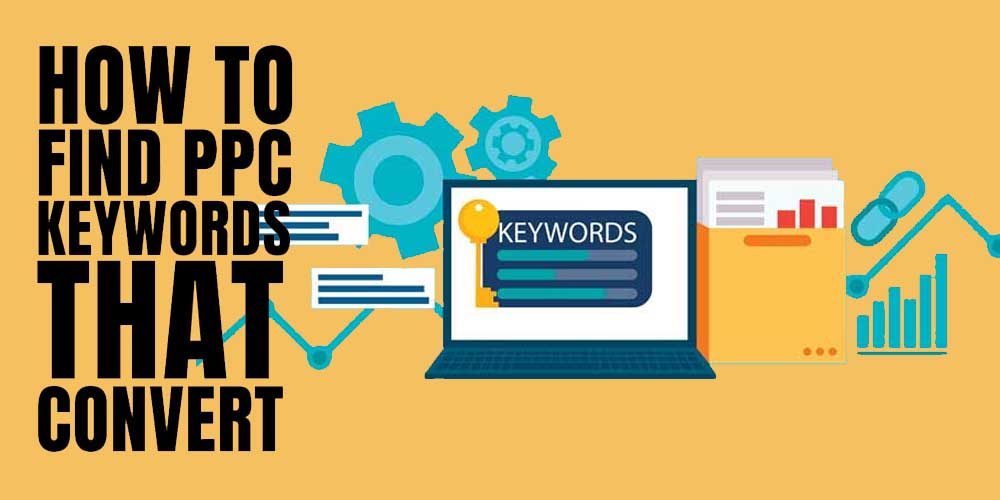
Next, you need to perform some in-depth analysis of the keywords you will be using. Of course, you can use some of the automated bidding strategies, and Google will surely help you out in that department, but sometimes you will want to take control of your marketing efforts. The most important thing is to review and analyze, see what works and what does not, and return to the table.
Constant Monitoring
Speaking of reviewing and analyzing, keep a close eye on key performance indicators for your campaign. See if your keywords, ad groups, and ad positioning are working and if you are getting what you have paid for.
Conversion Tracking
Additionally, as we have mentioned before, include the conversion tracking to accurately see if your customers are acting as you have requested. You can do that with a bit of help from Google Analytics or, as have suggested, through phone call tracking, using cookies and promo codes to see how many people have been reached with your ad. Managing bids in that regard is the act of setting up the ad and seeing how your bid management strategies are behaving in a real-life environment.
Keyword Grouping
When optimizing your PPC ads, the next important thing is to group your keywords into themed ad groups. That will allow you to create even more relevant ads. Keywords will be grouped into different categories, and you can optimize and manage bids according to your advertising budget and competitive keywords. That way, your ads will be more on par with the customers’ expectations and thus will improve your overall Quality Score.
Adjust the Bids
Additionally, you can adjust the bids based on the performance data you are receiving. That way, you can increase your bids for high-performing keywords and special ad groups, thus driving better results and gaining more visibility. Additionally, don’t overspend on underperforming keywords, and control your costs. Sometimes lower bid can mean higher marks in the long run. Consider bidding strategies like device and location to get an even better result.
Try Different Bidding Strategies
Additionally, be sure to not only make bid adjustments based on the relevant keywords but try different strategies! Maybe get into manual bidding? See if other ad formats could be good for you. Talk to your marketing teams and find different search queries they can recommend. Plenty of bid strategies are available out there, and if you can align those with your campaign goals, you will get your target CPA in no time! Be sure to monitor and analyze the outcomes of specific campaigns and act accordingly to what you have accomplished.
Ads Scheduling
Next, be sure to understand better your ad scheduling. Analyze when your ads are performing best and program them accordingly. Of course, you must adjust those bids and schedule them according to your budget because the peak hours are usually the most expensive.
Ads scheduling is also excellent for getting more people interested in your product during their high-performing hours. That is why, sometimes, you will have to increase bids to meet those hours and find the people when they are up and running.
Adapt to the Latest Trends
And finally – learn and adapt. What was true yesterday may not be true tomorrow, so keep your keyword level high and current with industry standards. Who knows what the future will bring, except that it will bring change.
Whether this would mean a completely different approach to finding the right keyword, utilizing more Artificial Intelligence solutions, or maybe even a completely new VR kind of ad – we will see it when it comes to us. Nevertheless, you must be the first in line, so look for ways to educate yourself on the topic. Search for webinars, learn from Google and other ad-selling companies, and get on with the times.
Google Ads Bid Strategy
Finally, let’s review some of the Google Ads bid strategies to implement in your PPC bidding. As the greatest ad-seller in the whole world, you need to understand Google and use it as your primary source of knowledge when it comes to PPC marketing and bidding. Google sets industry standards in many different ways, especially regarding bidding strategies in marketing. With Google’s help, you can use your resource more efficiently and create the best PPC campaign ever. Here are some tips on how to create a Google Ads bid strategy. Enjoy!
Manual CPC (Cost per Click)
Google Ads offers two types of strategies to utilize. You can either do a manual CPC or an automated one. When you choose the latter, the algorithm will do everything for you, and you will have nothing to worry about.
On the other hand, if you opt to do everything manually, you can target different groups of people and maximize your returns precisely. We advise you to do a hybrid model, where you will provide some personal insight, and the rest will be done by Google, with billions of dollars worth of algorithms running their platform. It’s safe to say, that they will probably know a thing or two about keyword bids.
Target CPA (Cost per Acquisition)
Target CPA is an automated strategy where you put in the cost you are willing to pay per acquisition. It is mainly based on your historical data, what the algorithm learned about your company and relevant keywords. Additionally, it adjusts bids in real time, so you can ensure you are taken care of. This kind of CPA bidding can bring you many benefits, but sometimes you must adjust some things manually.
Target ROAS (Return on Ad Spend)
Return on Ad Spend is another automated strategy where you maximize the return on your ads. That way, Google will adjust bids to get the best value when it comes to conversion rate. Although it may be pricey, the return on investment indicators skyrocket.
Maximize Conversions
Another automated bidding strategy is Maximize Conversions. As you can imagine, it aims to generate the maximum possible conversions for your site. The critical element here is to see if the target cost is within your budget, as it can get pretty expensive quickly.
Enhanced CPC (ECPC)
Another Google-based strategy is Enhanced CPC. With that, Google will adjust your bidding strategy to automatically optimize the bids for clicks for those with a higher chance to turn into conversions. ECPC is mainly based on signals coming from the location of the user, maybe their device, and the overall impression it gets about the user.
Maximize Clicks
On the other hand, Maximize Clicks aims to generate the maximum amount of clicks for the budget you have set. It’s pretty straightforward – the algorithm will use the data you provided, including historical information. This will be utilized to find out the highest amount of people who may be interested not in becoming the client, as it will take a lot more resources and time, but those who would likely have a look at what you’re proposing.
Target Impression Share
On the other hand, Target Impression Share allows you to set the percentage of ad impressions you want to gain. Google will automatically adjust the bids to fulfill this part of your overall campaign strategy.
Target Search Page Location
And finally, we have the Target Search Page Location. This option is to put your ad at the top of the search results page. It’s pretty pricey, we are not going to beat around the bush in that regard. TO outbid the other players in the market, you will have to put up some significant amount of money to even start in this competition. But, as you can imagine, it brings excellent results, so it’s worth it.
PPC Bid Management Conclusion
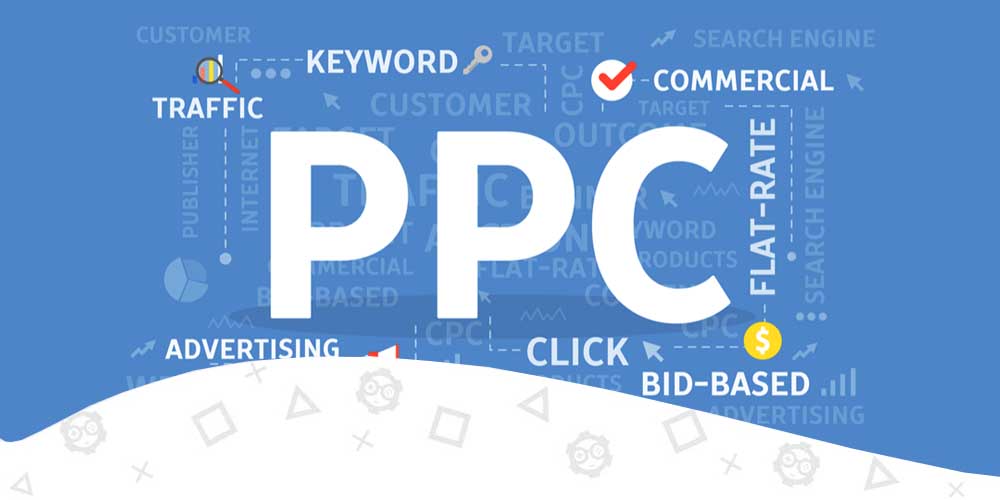
As we have stated throughout this article, PPC bidding can significantly help you create great targeted-ad campaigns. Whether it’s the conversion you are after, the sheer amount of views, or something completely different, it can help you get that, no questions asked.
With Google leading the stake, you can target any demographic you want. And if you wish to do the manual CPC bidding or any of the automated bidding options mentioned in this article, there are plenty of ways to utilize this tool to your advantage.
That is it for today; thanks for stopping by, and we will see you in the next one.

A PPC specialist who started with organic social media. For several years, the core of his activities are:- Google Ads, Microsoft Ads, Meta Ads, TikTok Ads, Twitter Ads, Linkedin Ads. He has led campaigns with a global reach, e.g. for FootballTeam, G2A, ETOTO, as well as many smaller campaigns in the sports, construction and financial industries. Has full focus on ROAS. Privately, a fan of football, history of wars and Star Wars.

